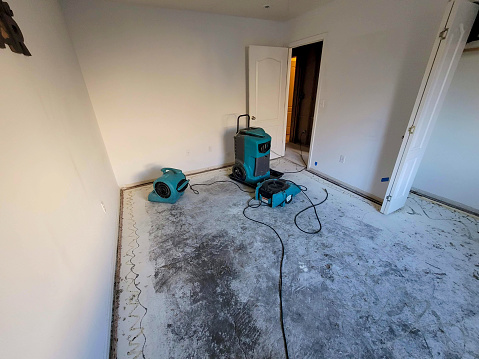Let’s cut through the fluff. You’re paying good money—hard-earned money—into an insurance policy that’s supposed to protect you when things go south. Whether it’s your home, your car, or your business, every month or year, you’re putting cash on the table, believing that when disaster strikes, your insurance company has your back. You’ve held up your end of the deal, so why shouldn’t they?
But here’s the cold, hard reality: insurance companies aren’t in the business of giving you what’s fair. They’re in the business of making profits. And the one person standing between you and your rightful payout? That’s the insurance adjuster—someone whose job is NOT to help you, but to make sure the insurance company doesn’t lose a dime more than they absolutely have to.
Yes, you read that right. While you’ve been faithfully paying premiums, trusting that your insurance provider will be there in your time of need, their priority is to cut costs, minimize payouts, and protect their profits. The adjuster is there to beat down your claim, not to ensure you get what you deserve. Let’s dive into exactly how this broken system works against you, and why you need to be prepared when dealing with insurance claims.
You Pay Premiums, They Pinch Pennies
You’ve been loyal to your insurance company for years, maybe even decades. Each month, you pay those premiums on time, trusting that when disaster strikes, the company will swoop in and make things right. After all, that’s what insurance is for, right? Wrong.
Insurance companies aren’t charities—they’re profit machines. In fact, the industry is designed to collect as much as possible from premiums and pay out as little as possible when claims roll in. That’s how they stay in the black and keep shareholders happy.
And that’s where the adjuster comes into play.
The Real Job of an Insurance Adjuster: Cut Back, Pinch Pennies, Save the Company Money
You might think that the insurance adjuster is your ally—someone who’s there to assess the damage fairly and make sure you get what’s owed to you. But don’t be fooled. Adjusters are paid to protect the company’s bottom line, not yours.
Here’s what the adjuster is really doing when they show up at your house or business after you file a claim:
- Lowballing Your Claim from the Start
Adjusters are trained to minimize your payout from the beginning. They’ll offer you an initial settlement that’s far below what you’re actually entitled to, hoping you’ll accept it without question. Why? Because every dollar they don’t give you is a dollar the company saves. - Nitpicking Every Detail to Reduce Your Claim
Don’t expect sympathy from an adjuster. They’re not there to help—they’re there to nitpick every single detail of your claim to find ways to reduce the amount of money the company has to pay out. Was that damage really caused by the event? Couldn’t this have been prevented? Adjusters will look for any loophole or technicality to deny part or all of your claim. - Delaying the Process to Wear You Down
Ever wonder why insurance claims take forever to process? That’s by design. The adjuster will drag out the claim for as long as possible, hoping you’ll get frustrated and settle for less just to get it over with. It’s a strategy to wear you down until you accept a lower payout than you’re actually entitled to. - Using Jargon and Confusion to Keep You in the Dark
Adjusters are experts in the language of insurance—a language designed to confuse you and make you feel powerless. They’ll throw around terms you’ve never heard before, hoping you’ll back off and stop fighting for what’s rightfully yours. The more confused you are, the more control they have over the outcome. - Shifting the Blame onto You
Adjusters are masters of shifting the blame. They’ll imply that the damage could have been avoided if you’d taken better care of your property, or they’ll argue that the issue wasn’t fully covered by your policy. This tactic is meant to make you feel guilty or responsible for the damage, so you’ll accept a lower payout.
The Bigger Picture: A System Built to Work Against You
So why is it like this? Why does an industry that’s supposed to help people in their time of need work so hard to avoid paying out fair claims?
Because the entire system is built to prioritize profits over people.
Let’s break it down:
- Insurance Companies Collect Premiums: Every month, you and millions of others faithfully send in your premiums. These companies are raking in billions of dollars in revenue every year, and a huge portion of that comes from premiums.
- They Invest Those Premiums: While your money is sitting in their coffers, they’re investing it to generate even more profit. That’s how they make money before they ever have to pay out a claim.
- Payouts Hurt Profits: The more claims they have to pay, the less profit they make. It’s simple math. So, when you file a claim, their immediate response is to figure out how they can minimize the payout and protect their profit margins.
- Adjusters Are Their Frontline Defense: Adjusters are the foot soldiers of the insurance industry. They’re trained to scrutinize every claim and find ways to reduce the payout. Whether it’s underestimating the cost of repairs, finding technicalities in your policy, or simply dragging the process out until you give up, their goal is always the same—save the company money.
It’s Unfair—And You Deserve Better
This isn’t just a bad deal—it’s flat-out unfair. You’ve been paying premiums for years, trusting that your insurance company would be there when you needed them. And now, when disaster strikes, they’re doing everything in their power to give you as little as possible.
Imagine this: you’ve been paying into an insurance policy for 10, 15, even 20 years. The premiums keep going up, but you pay them because you want peace of mind. Then, one day, a water damage catastrophe wrecks your basement, or a fire tears through your kitchen. You file a claim, confident that your years of loyalty will pay off.
But instead of the help you expected, you’re met with delays, denials, and a lowball offer that barely covers the cost of repairs. You’re left wondering why you bothered paying premiums at all.
This is the ugly truth about the insurance industry: it’s not designed to help you, it’s designed to protect their profits.
What You Can Do to Protect Yourself
Now that you know how the system works, how can you protect yourself and get the payout you deserve? Here are a few key steps:
- Don’t Accept the First Offer
Insurance adjusters are trained to offer the lowest possible payout right out of the gate. Don’t fall for it. Get multiple estimates for repairs and push back if the initial offer isn’t enough to cover your costs. - Document Everything
The more documentation you have, the harder it will be for the adjuster to lowball your claim. Take photos, keep receipts, and track every conversation you have with the adjuster. The more evidence you have, the stronger your case will be. - Get Professional Help
If your claim is being dragged out or unfairly reduced, don’t be afraid to hire a public adjuster or a lawyer who specializes in insurance claims. They work for you, not the insurance company, and can help ensure you get the payout you deserve. - Know Your Policy
Don’t let the adjuster use confusing language to trick you. Take the time to read and understand your policy so you know exactly what’s covered—and what isn’t. - Be Persistent
The insurance company is counting on you to get frustrated and give up. Don’t. Be persistent, and don’t back down until you get the payout you deserve.
Final Thoughts: It’s Time to Fight Back
You’ve been paying into your insurance policy for years, trusting that it would protect you in your time of need. But now you know the truth—the insurance industry isn’t on your side. They’re in the business of making profits, and they’ll do whatever it takes to minimize your payout.
But you don’t have to accept that. Armed with the knowledge of how the system works, you can fight back and get what you’re rightfully owed. Don’t let the insurance adjuster beat you down. Stand your ground, document everything, and don’t be afraid to demand the payout you deserve.
It’s time to hold these companies accountable. You’ve paid your premiums—now it’s time for them to pay up.


